Mathematics teacher: advantages and disadvantages, knowledge
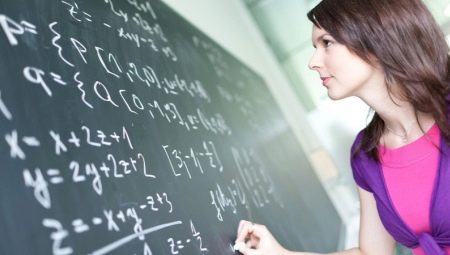
A mathematics teacher is an eternally relevant and in-demand profession that requires from a specialist not only an impeccable knowledge of his subject, but also special personal qualities. What should a mathematics teacher be like? What are the features of his work? What professional and individual qualities does this type of work require from a person?
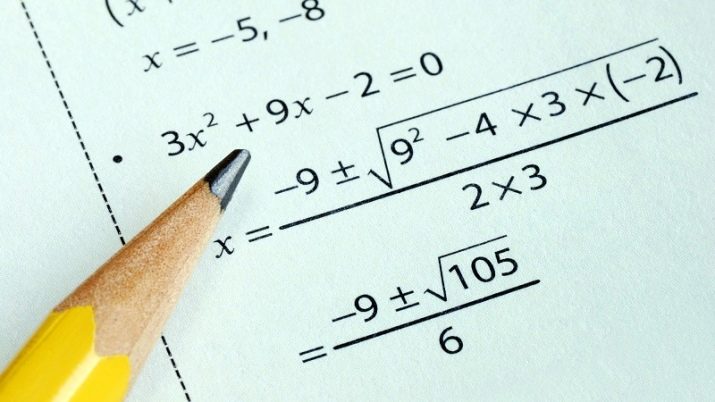
Features of the profession
Teaching the exact sciences, which includes mathematics, is aimed at developing students' logical thinking, analytical abilities, the ability to independently determine patterns and identify cause-and-effect relationships. The main features of the teaching process of mathematics are its strict phasing, continuity and integrity. Any omission or gap made at one of the stages of training in the future inevitably reduces the possibility of students' progress in the development of mathematical knowledge.
The main task of a mathematics teacher, according to the information presented in professional standards, is formation of a model of mathematical activity in students, corresponding to the current level of education and level of knowledge. In turn, the term "mathematical activity" refers to the mental activity of a student, which includes a complex of logical and analytical methods of thinking, which he knows how to apply in practice.
One of the most difficult tasks facing the teacher of mathematics is the competent organization of the educational process, involving the involvement of all students in the intellectual work.
The teacher should not only interest his wards, but also subtly stimulate them to independent analytical activity, individual and collective search for logically grounded decisions and patterns.

The professional activity of a mathematics teacher is aimed not only intellectual, but also social and emotional development of students. In the course of interaction with a teacher, students not only master the basics of exact science, but also acquire the social knowledge they need, improve communication skills and creativity.
The work of a mathematics teacher by no means excludes, on the contrary, it welcomes a creative approach to the organization of the educational process. Observations show that non-standard techniques used in organizing the educational process can greatly increase its effectiveness.
The profession of a mathematics teacher requires the following personal qualities and skills from a specialist:
- self-organization and self-discipline;
- patience;
- the ability to clearly formulate goals and determine the most effective ways to achieve them;
- stress tolerance;
- striving for continuous professional development, broadening one's horizons;
- the ability to prevent and resolve conflict situations;
- the ability to arouse the interest of students in their subject.
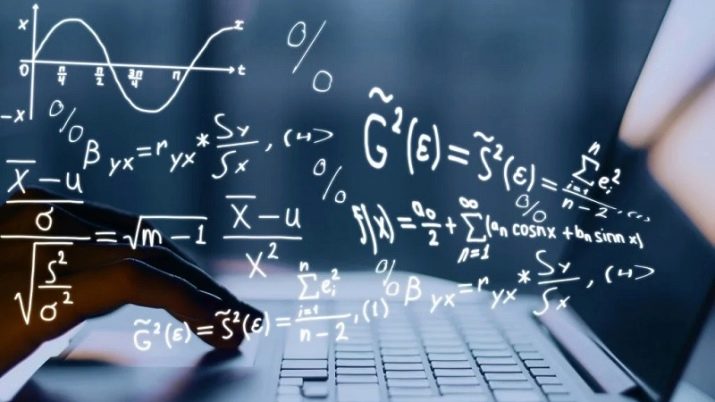
Advantages and disadvantages
Among the advantages of working as a mathematics teacher, the following should be noted:
- clearly established work schedule;
- official employment (in GOU and MOU);
- long vacation;
- bonuses and additional payments;
- self-development and personal growth.
The work schedule of a mathematics teacher is determined by the degree of employment of a specialist. The teaching staff rate today assumes employment for 18 teaching hours per week, which on average is 3-4 lessons on weekdays. Official employment (in particular, when working in a state or municipal institution) presupposes appropriate guarantees, subsidies, compensation and benefits. Officially employed specialists have a "white" salary, paid sick leave and study leaves, overtime pay.
The leave of the teacher of mathematics, according to the labor law, is 56 days. Of course, most teachers go on vacation in the summer, during the longest school holidays. Upon agreement with the management of an educational institution, a mathematics teacher can receive bonuses and incentive payments for organizing extracurricular activities.
So, the extracurricular activities of the teacher include the preparation of students for city and regional Olympiads in mathematics, for various intellectual competitions and competitions in this subject.

Being a math teacher requires tireless self-development and personal growth. In recent years, educational programs and training standards have undergone significant changes, suggesting new methods of organizing the educational process. Thus, the activity of a mathematics teacher today combines the scientific experience of previous generations, and the revolutionary discoveries and achievements of contemporary scientists.
It should not be ruled out that modern teachers prefer to use high-tech inventions (3D projectors, touchboards) in the organization of the educational process, which significantly increase students' interest in the topic or subject under study. These features also require the teacher to be progressive and creative in organizing work with students. The specialists themselves usually attribute to the disadvantages of working as a teacher of mathematics an insufficiently high level of wages. Its size depends on the size of the salary, compensation payments and incentive allowances.
According to information provided by city employment services in 2019, the average salary of a mathematics teacher in Moscow is from 60 to 90 thousand rubles, in St. Petersburg - from 30 to 45 thousand rubles. In the northern regions of Russia, the average salary of a mathematics teacher is 65 thousand rubles. In other regions of the Russian Federation, the level of teacher salaries varies from 15 to 30 thousand rubles.
Psychologists consider another disadvantage of the profession high risk of developing burnout syndrome. Both young teachers and teachers with extensive work experience are susceptible to the development of this syndrome.
Increased emotional and intellectual stress, the burden of responsibility, the search for an individual approach to each ward, close interaction with students and their parents - all these and many other factors can negatively affect the psychoemotional state of a specialist.
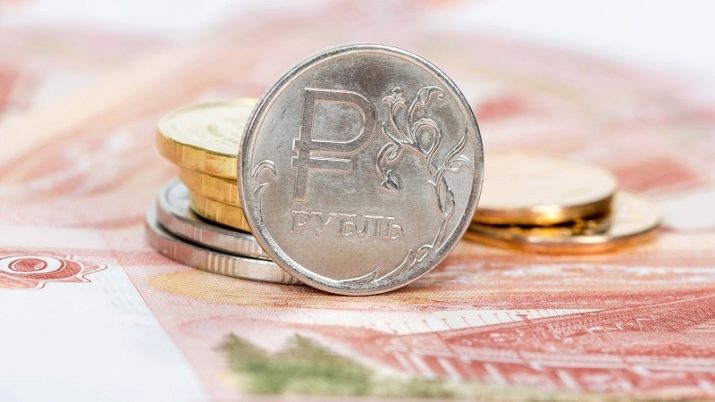
Skills and knowledge
The demand for a mathematics teacher in the labor market depends not only on his experience and qualifications, but also on the level of knowledge and skills acquired in the professional sphere. Recruiting officials say that many employers are more willing to give preference to candidates who are tirelessly improving their professional level, interested in innovations and the latest scientific achievements in their field of work.
It is customary to refer to the basic and mandatory skills of a mathematics teacher as follows:
- impeccable knowledge of the theory of your subject;
- the ability to solve in practice mathematical problems of various levels of complexity;
- knowledge of PC at the level of an advanced user;
- the ability to explain complex topics replete with terminology in a simple and easy-to-understand language;
- the ability to plan, organize and control the educational process;
- high level of communication.
Among other requirements for mathematics teachers, the following should be noted:
- impeccable knowledge of a specialized subject (mathematics, algebra);
- knowledge of descriptive and projective geometry;
- knowledge of the basics of drawing;
- knowledge of computer science;
- knowledge of the basics of psychology and pedagogy.
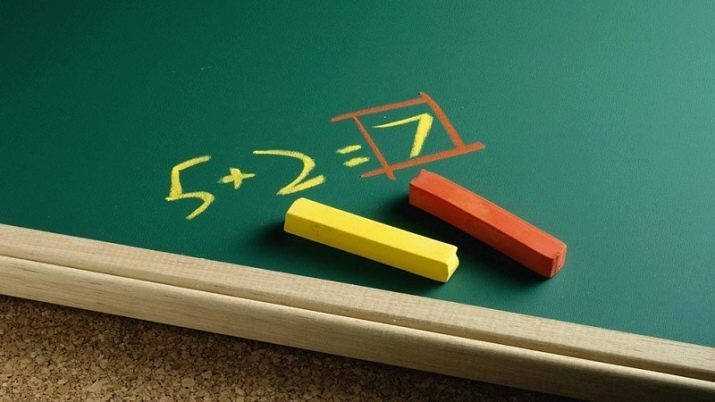
Education
Get this specialty on the basis of the existing complete secondary education (11 classes) it is possible in a pedagogical university by choosing one of the following forms of education:
- full-time - 4 years;
- extramural, evening - 5 years.
At the entrance tests, the applicant will have to demonstrate his level of knowledge in the following subjects:
- mathematics (algebra);
- Russian language;
- social science (or physics, geometry).
Career
Under favorable circumstances, a mathematics teacher in a municipal or state educational institution may eventually take the position of head of educational or teaching and educational work or deputy director for information and communication technologies. However, he can also continue to teach lessons in his subject. Further training and retraining courses also contribute to career growth.
As part of training in such courses, a mathematics teacher can master the related specialty that is most suitable for him - a programmer, economist, financial analyst, mathematician-engineer, designer, system administrator, statistician, logistician.
In this case, basic (mathematical) education will act as a reliable foundation conducive to mastering a new profession.









